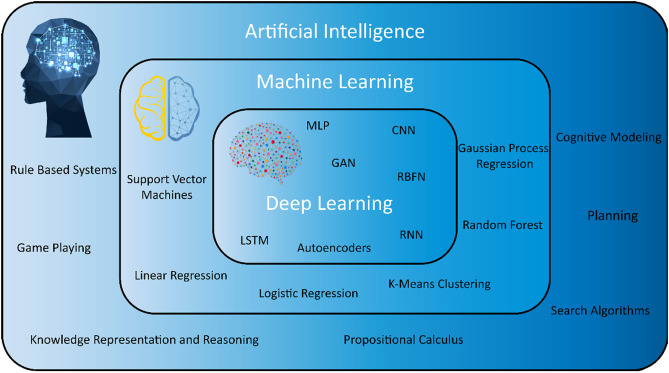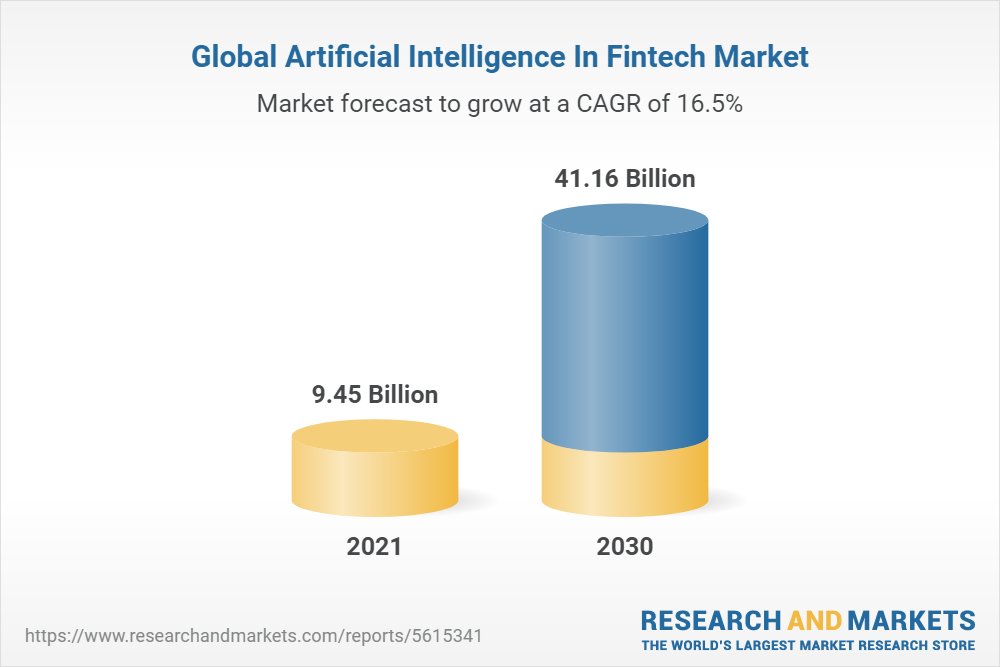Artificial Intelligence (AI) and Machine Learning (ML) are disrupting the financial technology (fintech) industry, making financial services faster, more personalized, and safer.
In this piece, we’ll look into how AI and ML create new ideas and tools in fintech software, changing various financial services. We’ll also explore the challenges of using these powerful technologies.
Artificial Intelligence and Machine Learning: An Overview
Artificial intelligence (AI) is a technology that mimics human thinking. It can learn, spot patterns, make decisions, and get better at tasks over time without needing human help.
Machine learning (ML), a subset of AI, uses algorithms that enable computers to learn from data and make predictions or decisions. Simply put, ML models get better at what they do the more data they take in.
Both AI and ML have the potential to transform fintech by making financial services more efficient and secure and tailored to individual needs.
Innovating Fintech Software & Tools With AI and ML
Artificial intelligence and machine learning help create personalized services by analyzing huge amounts of data to understand what customers want and need. This makes financial services more tailored and efficient.
- AI chatbots provide real-time customer support, improving user experience and cutting down wait times.
- AI also uses different types of data to assess credit. This not only lowers costs but also makes financial services more accessible and affordable.
- AI-driven biometric systems and computer vision enhance security in bank branches by accurately verifying identities.
- AI can scan loads of data to automate regulatory reporting and identify potential risks, making compliance processes smoother.
- AI helps prevent money laundering by constantly watching transactions for suspicious activities.
Natural language processing (NLP) and computer vision also contribute to fintech growth, offering personalized experiences and boosting security.
Generative AI provides personalized financial advice, helps with fraud detection, and creates synthetic data for research, making it a crucial tool in fintech.
Robotic Process Automation (RPA) works well with AI to automate routine financial tasks and improve overall efficiency.
Additionally, professionals with a strong technical background, such as those holding CompTIA A+ Certification from online training resources, can leverage their skills to effectively manage and implement these advanced AI-driven tools.
AI in Different Financial Sectors
Banks, digital banks, insurance companies, and payment processing firms are using AI to boost their fintech custom software development. It helps them run smoother and gives customers a better experience.
Traditional and Digital Banks
Banks are using AI to recommend the right products for each customer, provide top-notch customer service, and improve how they score credit. By looking at a lot of data, AI can guess what customers need and offer financial products that fit them perfectly, making customers happier and more loyal.
Insurance Companies
Insurance companies use AI to speed up claims processing, offer customized policy options, and catch fraud. AI tools can quickly check and process claims, cutting down wait times and reducing costs.
Payment Processing Firms
Payment processing firms use AI to detect fraud, verify user identities, and solve disputes. AI watches transactions in real-time, spotting and flagging anything suspicious that might be fraud.
Venture Capital Firms
AI also helps venture capital firms by assisting in due diligence, doing predictive analysis, and making smart investment choices. AI looks at data to find good investment opportunities and reduce risks.
Challenges and Solutions in AI Implementation
Putting AI to use in the fintech field comes with problems like:
- processing sensitive data,
- following data security rules,
- and keeping up with new cyber threats.
These problems can make it harder to integrate AI technologies, but they can be fixed with smart solutions like:
- Data Encryption: To keep data safe from breaches, strong encryption methods and strict access rules are needed.
- Regulatory Compliance: Follow data security laws like GDPR and CCPA. Fines and damage to reputation can happen if the organization doesn’t follow the rules.
- AI Transparency: Maintaining transparency in AI algorithms to prevent biases and build trust.
- Cybersecurity Measures: Because cybercriminals are getting smarter, fintech companies need to stay one step ahead. Invest in state-of-the-art cybersecurity defenses to counteract evolving threats.
- Human Oversight: Incorporate human judgment in AI decision-making processes to enhance reliability.
Advantages and Applications of Machine Learning in FinTech
The primary advantages of machine learning in fintech include:
- Enhanced Fraud Detection: Algorithms constantly learn from transaction data to detect and flag questionable activity.
- Improved Client Service: AI-powered chatbots respond instantly and accurately to client requests, improving the user experience.
- Predictive analytics uses machine learning models to foresee trends and customer behavior, allowing for more proactive decision-making.
- Automated Processes: Repetitive operations like data entry and customer onboarding are optimized to increase operational efficiency.
- Personalized Financial Services: Financial goods and services tailored to individual client data increase consumer happiness and loyalty.
Machine learning helps to automate difficult procedures and improve decision-making accuracy. Here are a few examples of ML applications in fintech.
Fraud detection
Machine learning algorithms use transaction patterns to detect and prevent fraudulent activity in real-time. This proactive technique decreases financial losses while increasing security.
Credit Scoring
Traditional credit scoring systems frequently rely on small datasets, but machine learning models leverage diverse data sources, such as social media behavior and transaction history, to deliver more accurate and inclusive credit ratings. This allows financial organizations to offer credit to a wider spectrum of customers.
Investment Management
Algorithms examine financial data to find patterns and optimize portfolio performance. This results in more informed and timely investment decisions.
Customer Service
Chatbots and virtual assistants are examples of machine-learning applications that improve customer service. They give instant support, answer questions, and address difficulties, increasing customer happiness and operational efficiency.
Regulatory Compliance
Machine learning automates the monitoring and reporting operations. It guarantees that financial institutions follow regulatory requirements, reducing non-compliance risk and resulting fines.
Latest AI and ML Software Innovations For Fintech
AI tools like GPT-4, Clarifai, DatRobots, Kavout, and Friss are using machine learning to predict market trends, recognize images and videos, and detect fraud in real-time.
- GPT-4’s cutting-edge AI is changing how financial firms process and analyze data.
- Clarifai has improved customer interactions with its smart image and video recognition features.
- DatRobots offers powerful machine-learning tools that help financial institutions make better decisions.
- Kavout is making strides in AI-driven trading, while Zest AI is enhancing AI-driven lending solutions.
- Friss stands out in the insurance industry for its ability to catch fraud.
- Personetics excels at providing personalized banking experiences, and Amazon SageMaker makes it easier to build and launch machine learning models.
Key Features of the AI Tools
Each AI tool has specialized features aimed at addressing specific needs within the fintech industry, boosting efficiency, security, and customer satisfaction.
- Kavout shines with its predictive analytics, risk management, and automated trading strategies. It uses AI to make accurate stock predictions, making portfolio management easier and more precise.
- Zest AI focuses on automated underwriting to support inclusive lending and detect bias in loan decisions.
- Friss employs machine learning to spot irregularities in data, alerting financial institutions to possible fraud. It also helps stop fraud by checking policies in real-time.
- Personetics delivers AI-driven customization for engaging customers proactively, a cognitive chatbot for customer service, and strong security features.
- Amazon SageMaker offers a simple interface, the SageMaker Studio for building machine learning models, and an all-in-one machine learning pipeline.
Conclusion
AI and ML are playing a key role in changing the fintech industry.
These technologies help financial institutions work better and offer personalized services. For example, AI-driven chatbots improve customer service, and advanced fraud detection makes things more secure.
Although there are challenges like data security and following regulations, strong solutions like data encryption and AI transparency can effectively tackle these problems.
The newest AI and ML tools are expanding what’s possible in fintech, leading to a future where financial services are smarter, quicker, and more accessible for everyone.


























The blog effectively highlights the transformative impact of AI and ML on the fintech industry. By leveraging these technologies, banks can enhance customer satisfaction through personalized product recommendations and streamlined credit scoring. Insurance companies benefit from faster claims processing and tailored policy offerings, while payment processing firms enhance security by detecting fraud and verifying identities in real-time. Additionally, venture capital firms utilize AI for improved due diligence and investment decision-making. Overall, the integration of AI and ML not only boosts efficiency but also fosters a more customer-centric approach across various financial services.
Leave a comment!